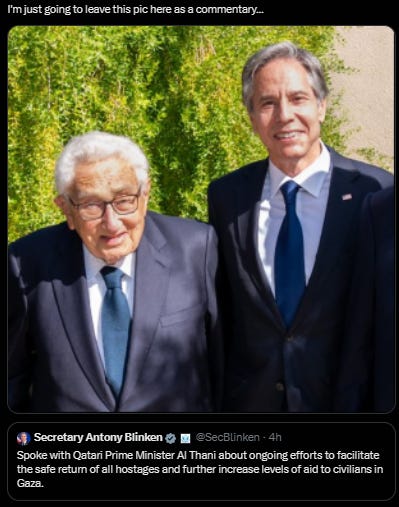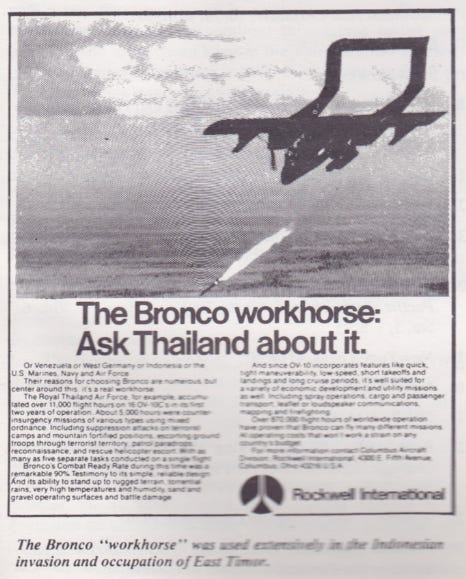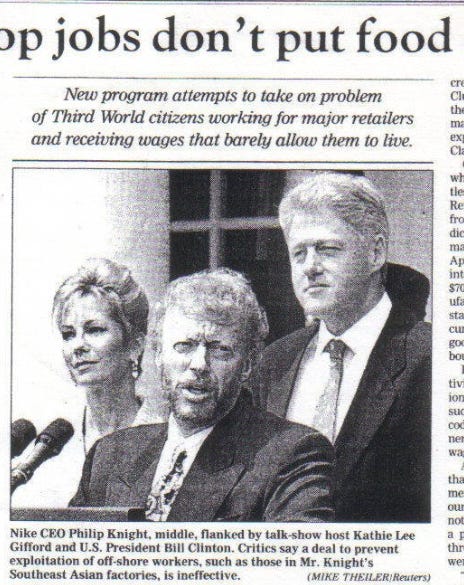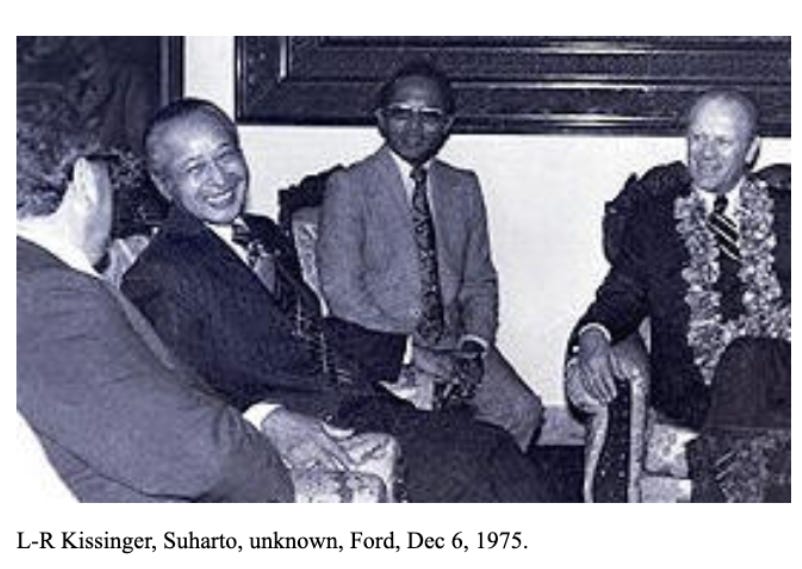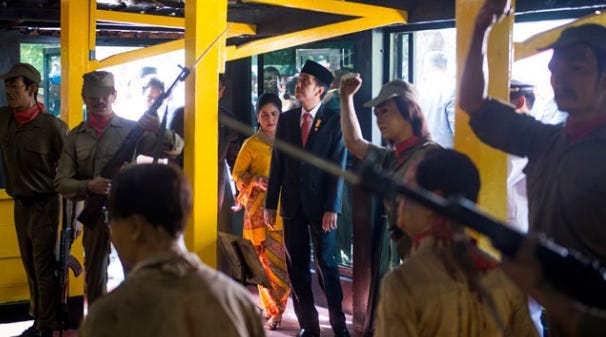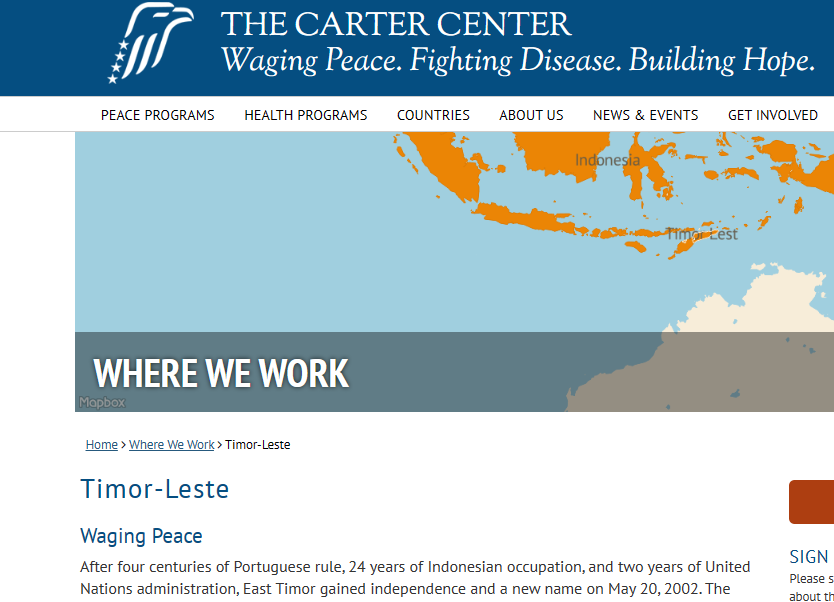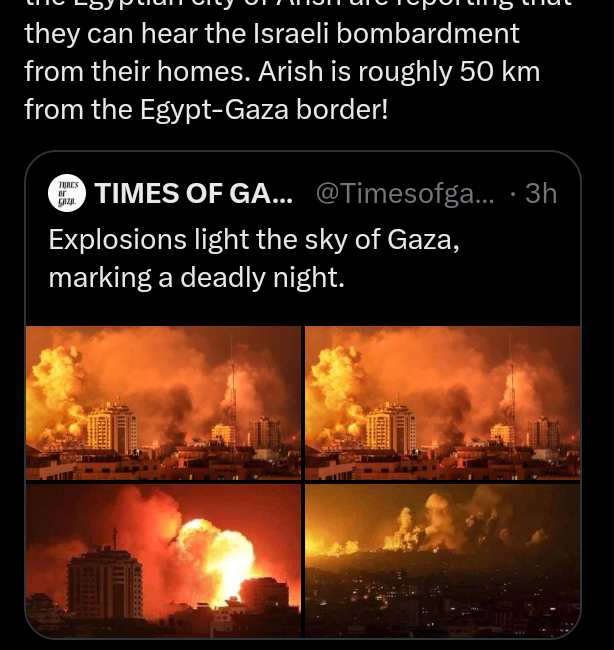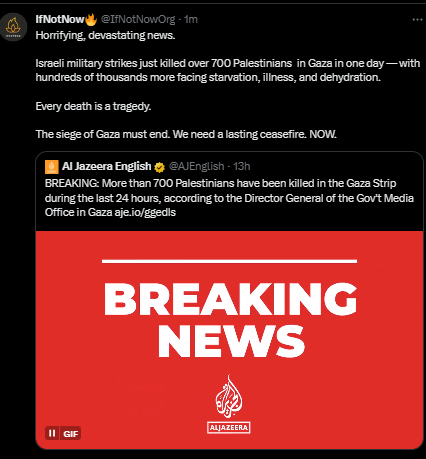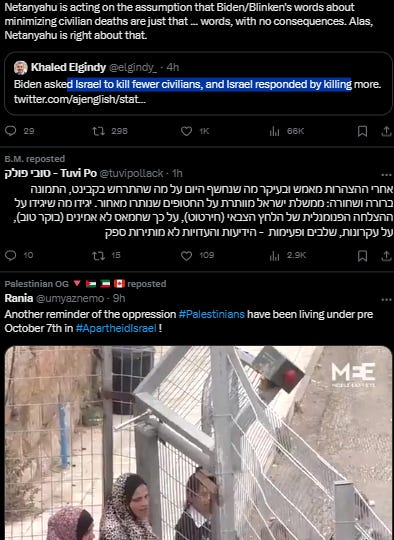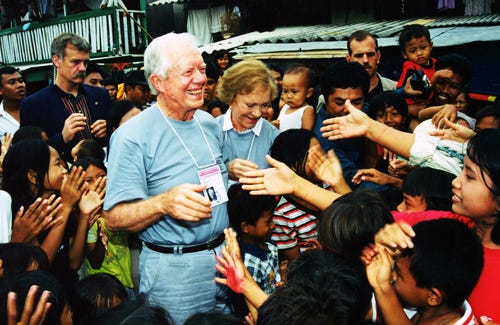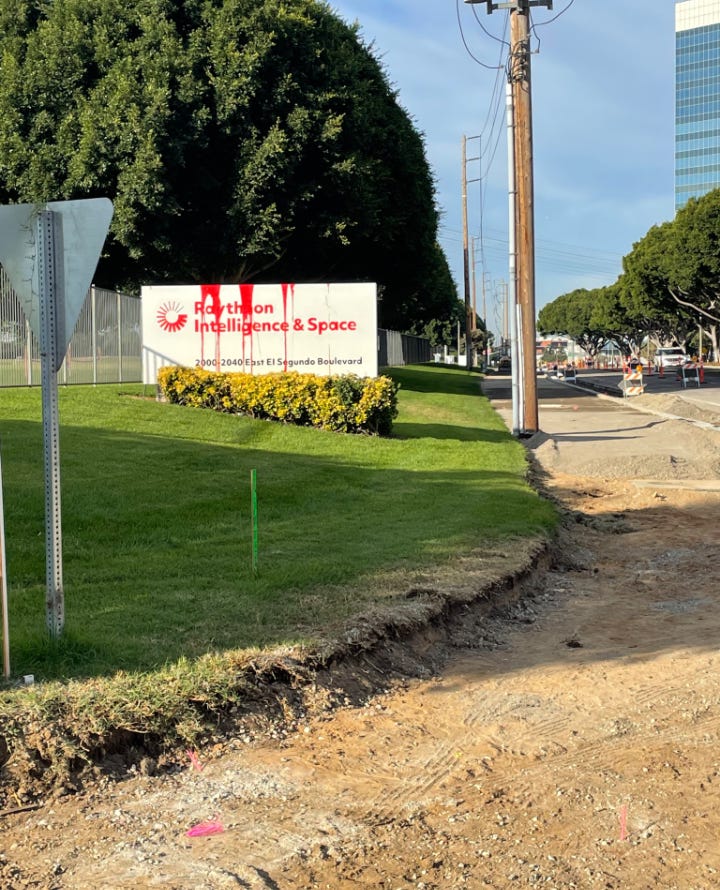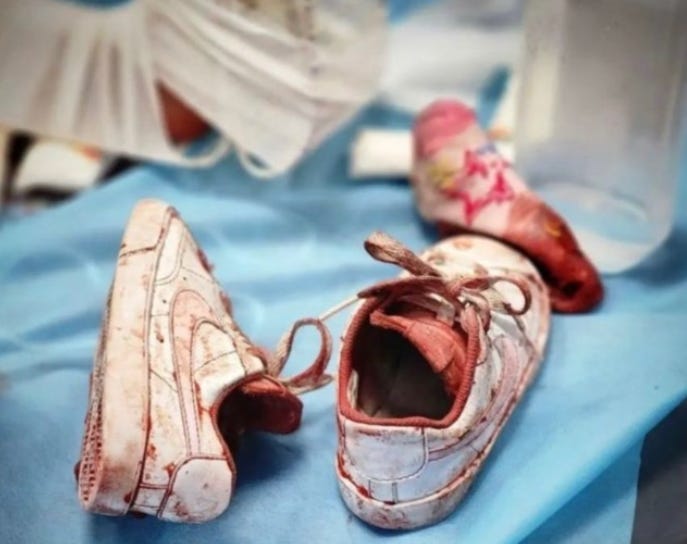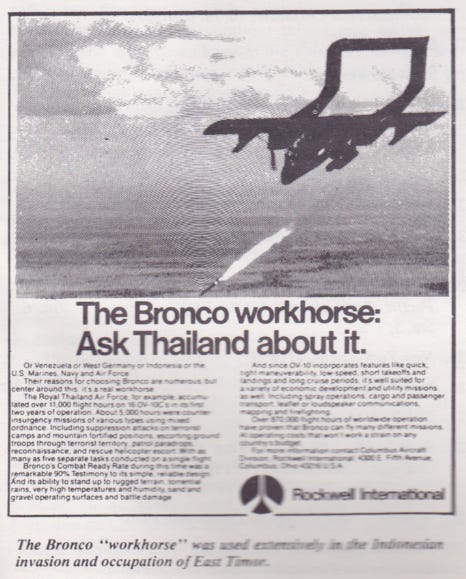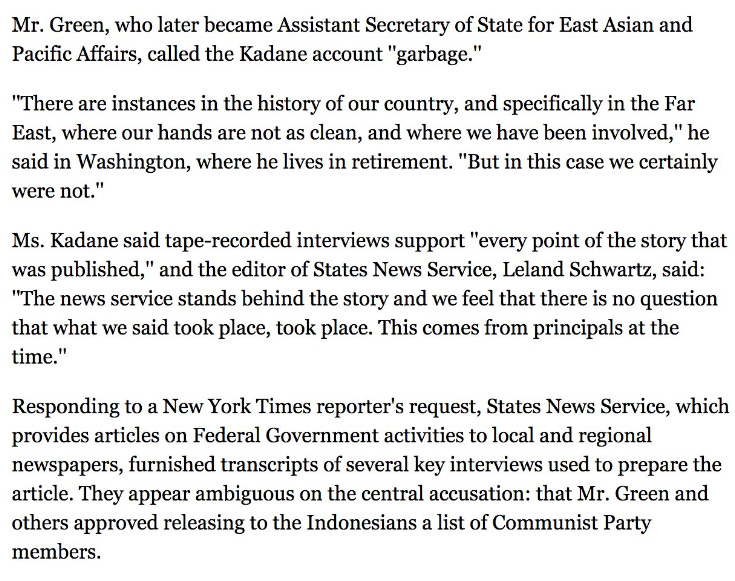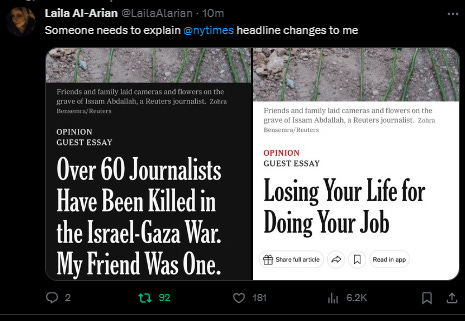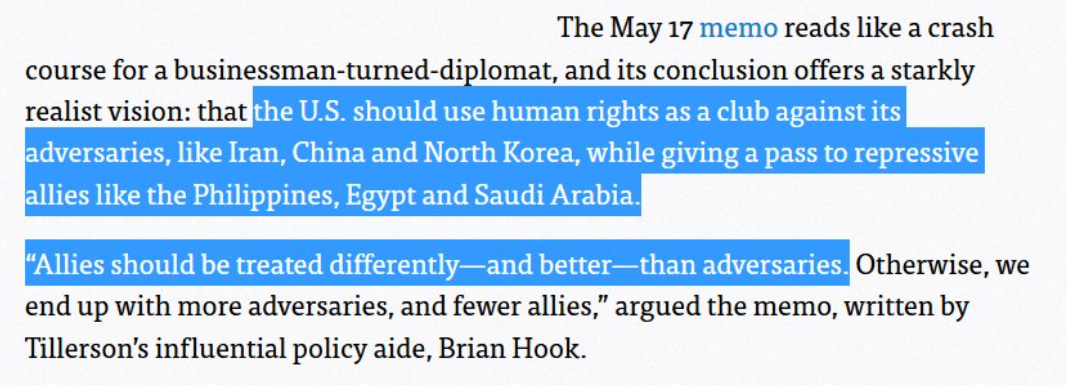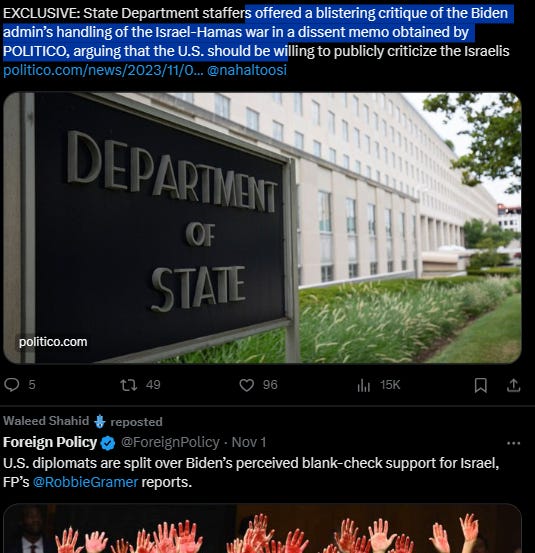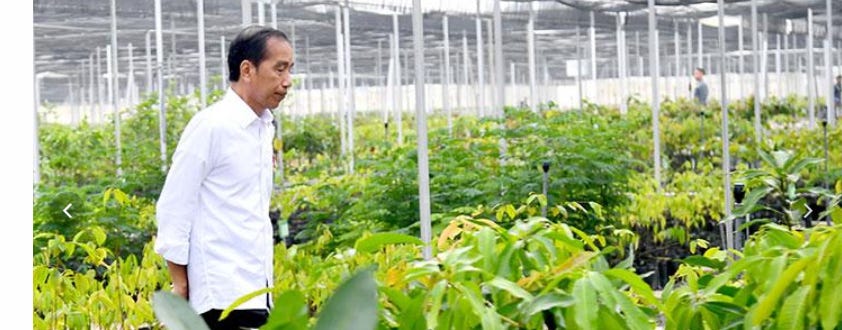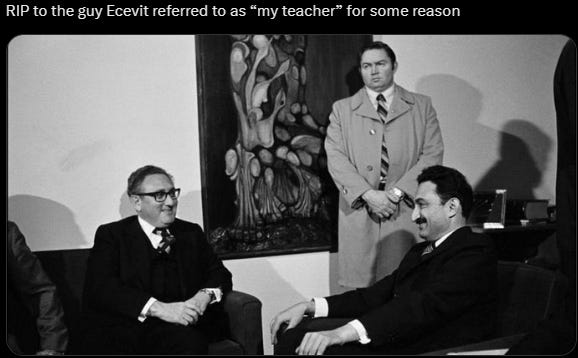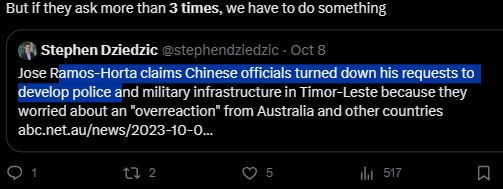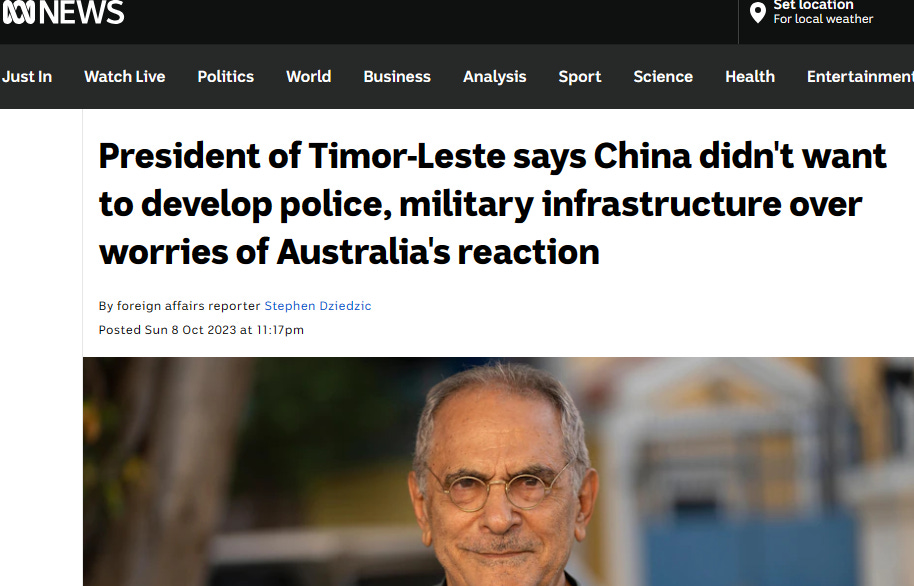Timor Leste After Kissinger, Before Timor Leste Warlord in the past to be new President
Dili and Brisbane 2.02pm
Preparing that [retired general commander] Prabowo Subianto Djojohadikusumo, former son-of-law Suharto / Soeharto, former Indonesia commander on East Timor / Timor Timur [Timur = ‘east’ in Indonesian language] / Timor Leste / Timor Loro Sae [SEROJA SPECIAL FORCE], maybe has a biggest chance to be new Indonesia President 2024 to replace ‘Jokowi’ Joko Widodo, we look back not only Cambodia but also East Timor, currently 24 years old [since independence 1999] after decade, with ‘approval’ by Kissinger, Indonesia occupied East Timor.
Among the long list of things Kissinger did in Southeast Asia: He gave Suharto the go-ahead to invade Timor Leste / Timor Timur / Timor Loro Sae, led by [commander] Prabowo Subianto Djojohadikusumo as chief of [special force unit for Timor Leste issue] SEROJA GROUP / SEROJA FORCE— now Presidential candidate again in Indonesia, launching a bloody civil war that left as many as 200,000 dead. For years after, even after Timor Leste gained independence, Kissinger denied his role.
US media also gave Bubba a pass when he welcomed Suharto into the White House [after Kissinger met Suharto / Soeharto in Presidential Palace Jakarta, say ok to occupy East Timor], and Trade Representative shit-canned excellent case against the Indonesia government for labor rights violations. And, snoozed as he demobilized anti-sweatshop movement. extreme crimes perpetuated by the arrogant Ivy Leagers who first joined the CIA, in Indonesia & all around the world.
JAKARTA METHOD. VINCENT BEVINS
In 1975, President Gerald Ford met with Suharto of Indonesia in Jakarta [then Suharto visit Washington DC and of course The White House]- who took power after one of the worst genocides of the 20th century [McCarthyism style in Indonesia, purge- kill 30 - 40 million people, ‘false accusation’ communism] - to give him the green light to invade East Timor. He did, inflicting a genocide on the people of East Timor that President James Earl ‘Jimmy’ Carter then supported with arms and money.
2x Jimmy Carter to be observer of Indonesia election, 1999 & 2004, not only in Gaza January 2006 [HAMAS won].
Jimmy Carter may not have started a war, but he sold lethal weapons to Indonesia for its invasion of East Timor. Invasion of East Timor began and the murders when Ford still POTUS, and then, rapes and other atrocities continued un-abated throughout the entire Carter Administration, culminating in the deaths of approximately 200,000 men, women and children, the vast majority of who were civilians.
A week after the invasion of East Timor, the National Security Council prepared a detailed analysis which found that the vast majority of the military equipment was US supplied. While the US government said they had suspended military assistance from December 1975 to June 1976, military aid was actually above what the US Department of State proposed and the US Congress continued to increase it, nearly doubling it.
Between 1975 and 1980, when the violence in East Timor was at its climax, the United States furnished approximately US$340 million in weaponry to the Indonesian government. US military aid and arms sales to Indonesia increased from 1974 and continued through to the Bush and Clinton years until it was stopped in 1999. US arms provisions to Indonesia between 1975 and 1995 amounted to approximately US$1.1 billion.
The UN's Commission for Reception, Truth and Reconciliation in East Timor (CAVR) stated in the "Responsibility" chapter of its final report that US "political and military support were fundamental to the Indonesian invasion and occupation" of East Timor between 1975 and 1999. The report (page 92) also stated that "U.S. supplied weaponry was crucial to Indonesia's capacity to intensify military operations from 1977 in its massive campaigns to destroy the Resistance in which aircraft supplied by the United States played a crucial role."
Back in the day when arms dealers sold weapons specifically designed for fighting counterinsurgencies - in this case, the Indonesian invasion and occupation of East Timor. "Ask Thailand about it. Or Venezuela or West Germany or Indonesia or the US Marines, Navy and Air Force." 200,000 of his flock are raped and massacred, including small children.
NYT / NEW YORK TIMES massive 1990 story published to "correct" an early expose of US crimes in Indonesia.
Same NYT / NYTIMES about genocidal Israel in Gaza
leaked State Department memo officially confirms the open secret we all knew: when the US government expresses concerns about so-called "human rights," it doesn't actually care about human rights; it's just a cheap political tactic to demonize US enemies.
When Timor Leste regained its independence in 2002 [referendum 1999 —- I count Timor Leste already ‘FREE’ 1999, not only 2002], its future looked grim. Twenty-four years of Indonesian occupation had decimated its population and economy, leaving it one of the poorest nations in the world. But by deftly managing its resources and strategic relationships in the region, Timor-Leste has emerged as one of Southeast Asia’s most vibrant and resilient democracies. That success is now under threat.
As Timor-Leste enters its third decade of statehood, it faces several transnational challenges that are largely beyond its control. The effects of climate change, the lingering impact of the COVID-19 pandemic and increasing competition between China and the United States in the Indo-Pacific are potentially destabilizing for the young country. To make matters worse, Timor-Leste isn’t dealing with these issues one at a time. Instead, it is staring them down all at once, and their effects will be exacerbated by domestic economic and political transitions over the next decade. If either of these goes awry, much of what Timor-Leste has accomplished over the past 21 years could come undone.
Many nations – especially those with larger populations, economies and land masses – have the necessary time and resources to adapt to complex changes. As a small island with a population of just over 1.3 million and an estimated gross domestic product of US$1,500 per capita, Timor-Leste does not have these luxuries.
Its small economy is dominated by its petrochemical sector, with remittances, agriculture, coffee and tourism making up much of the balance. Its government is reliant on dwindling oil and gas royalties for revenue and, if nothing is done to change course, Timor-Leste will stare down a fiscal cliff within the next decade or so. To date, efforts to diversify the economy have produced limited benefits, and its economic and fiscal outlook may hinge on the successful development and exploitation of the Greater Sunrise gas field.
But it’s not certain that the project will go ahead, and Timor Leste’s hopes of securing funding from Australia, China, or other sources to build the infrastructure necessary for processing the gas domestically haven’t panned out.
The state of Timor-Leste’s economy is central to its political stability. Since 2002, it has been led by a small cadre of resistance-era leaders who have built the country from the ground up and defined its national identity. They are almost universally trusted by the Timorese people to lead their nation.
But as they age, an inevitable transition of power to younger successors is approaching, and it is unclear when and how the “Generation of ‘75” leaders may transfer power to the next generation.
If they retire unexpectedly before an orderly succession can be arranged, the resulting power vacuum will test Timor-Leste’s democratic resilience, especially if coupled with a struggling domestic economy. Collectively, these elements present cause for concern that, if left unaddressed, will reverberate far beyond Timor-Leste’s borders. Geopolitics will ensure this, as its location along the Ombai-Wetar Strait and proximity to Indonesia and Australia are of strategic interest to Beijing, Canberra, Jakarta and Washington.
2 Months ago, Jose Ramos-Horta claims Chinese officials turned down his requests to develop police and military infrastructure in Timor-Leste because they worried about an "overreaction" from Australia and other countries.
Some Australian politicians expressed alarm when China and Timor-Leste struck a new comprehensive strategic partnership during a visit to Hangzhou by Prime Minister Xanana Gusmao last month.
The new partnership focuses largely on building food self-sufficiency and infrastructure in Timor-Leste, as well as bolstering trade ties, but includes a section on enhancing "high level military exchanges" as well as strengthening cooperation on "joint exercises and training".
Mr Ramos-Horta told the ABC that Timor-Leste was only focused on securing more Chinese assistance for its key development priorities — not military cooperation.
He also said that Beijing had deliberately turned down opportunities to help develop defence infrastructure for fear of Australian "sensitivities", and out of "respect" for Canberra's desire to maintain its primacy as a security partner in the Pacific.
"I have to say, in credit to China, we could have had more Chinese support for instance in infrastructures to our defence forces, to our police force," he told RN Breakfast.
"And sometimes when I chat with the Chinese about increasing their support to our police force, like building our whole compound, they'd say they'd be willing to do it, but they'd be concerned about the overreaction, or potential overreaction in Australia and elsewhere.
"So, the Chinese are actually sensitive to the sensitivities of our neighbours. So, they are more respectful of Australia's position than Australia is of the Chinese position."
Timor-Leste’s future isn’t preordained. The obstacles the country faces could bring it into dire straits and trigger a crisis with international ramifications, but if successfully surmounted bring progress and prosperity that the world can learn from, especially when the time comes for less vulnerable nations to grapple with the same hazards facing Timor-Leste in the here and now. Ultimately, decisions made over the coming years by its leaders and people will determine the direction this young nation takes. The world would be well-served to start paying more attention to this oft-forgotten island; it was brought into being by the United Nations, after all, and the international community bears a special responsibility for its wellbeing.




